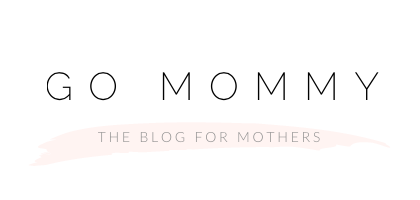Yes, every mom knows that breastfeeding is best. How can we not know? The media, government campaigns, global organisations, signs in our OB/GYN and pediatrician’s offices, and every parenting book or website- everywhere around the globe you would come up with reports on studies about benefits of breastfeeding. We got it. We know that breastfeeding is best. Thank you very much.
But the reality for moms is what’s less frequently talked about.
Breastfeeding is hard – emotionally and physically. It’s stressful. It means a lot of sleepless nights. It means being attached to your newborn almost constantly day and night (at least for the first couple of months). Don’t get me wrong here- although it’s a wonderful feeling, it’s also … after awhile … very frustrating as you really can’t do anything else (like exercise, house-chores or may be as basic as taking a shower). And I’m not saying we moms aren’t up for it. I mean we can take on a lot.
But there’s a reason why many moms don’t breastfeed … and if they do, they don’t do it for very long. And this, my friends, I am talking about us– the modern urban, educated women!
Rural moms better than Urban moms at breastfeeding

In the last few decades, breastfeeding has become a global challenge. Government has been promoting breastfeeding in a big way, and creating awareness about the benefits of mothers’ milk for the healthy growth and development of a newborn child. Initiatives like MAA (Mother’s Absolute Affection) to promote breastfeeding and national guidelines to start lactation management centres in government hospitals to ensure sick and pre-term babies are fed with safe human breast milk have been picking up well across the country especially the rural parts. A lot of NGOs & Aangadwaadis are involved in this movement. A sustained & intensive awareness campaigning on breastfeeding has led to marked improvement. In fact, a national survey had showed that rural area is better than urban area in breast feeding practices.
Also because rural families cannot afford to buy expensive formula milk, therefore, they rely more on breastfeeding.
But then what is stopping urban educated women to practice Exclusive Breastfeeding (even for first 6 months of the baby) ?
A close friend of mine was exclusively breastfeeding her newborn, until a visit to the pediatrician revealed that the baby wasn’t gaining enough weight. Panicked, she immediately introduced formula milk in her baby’s diet. And why wouldn’t she – when her doctor gave her a compelling reason to do so. This is not a standalone case. An increasing number of new mothers are giving their newborns formula milk, some even abandoning breastfeeding completely.
So you see while breastfeeding is supposed to be a normal process but women are suffering because of ignorance – both from caregivers and hospital staff.
Well, there definitely exist a few clear factors that are a cause of lower motivation in urban women to EBF. A few, I believe, are-
- A happy and peaceful state of mind is critical for a mother to continue breastfeeding as it releases oxytocin – the hormone that helps in lactation. But with a fast paced urban life and social barriers, such as lack of support from family and community and embarrassment to breastfeed in public, often hinder a nursing mother.
- For working mothers, a substantial gap exists in terms of support from employers. Most mothers do not have rooms that allow them to express and store milk for the baby. There are also scenarios where mothers do not have adequate maternity leave and flexible work timings – most often forcing them to move to alternate feeding.
- There is a notion among women in urban areas that breastfeeding takes a toll on one’s body shape causing saggy breasts, weight gain etc (of course there is no scientific evidence to prove this conception).
- Though demand feeding which actively involves the infant in controlling the breast milk intake is desirable, apprehension among the urban mothers regarding the growth of the infant result in their following a rigid time-bound feeding.
- Aggressive marketing by multinational companies to promote baby foods as supplementary diet also attracts young mothers. many baby food giants promote supplementary baby food, thus misleading mothers and undermining breastfeeding.many young mothers, especially those who are working, adopt artificial feeding of supplementary products like milk powders due to insufficiency of their breast milk for the baby.
- Lesser EBF rate in the urban setting is also contributed by a large number of caesarean sections. With higher c-sec rate, the
- In urban areas comprising a considerable chunk of working women who suffer from several health related problems like physical and mental stress, general weakness, excessive work load because of work pressure, family pressure etc. are all very real issues. The result- an exhausted and drained out mom!
- In the private sector, despite adequate resources, there is a lack of motivation among staff, including neonatologists, pediatricians and nurses to ensure that the baby is with the mother in the first hour and she is supported to breastfeed.
Well, as an advocate of breastfeeding and based on two years (and counting) as a nursing and pumping mother & countless conversations with counterparts across the world, I strongly believe that every baby has a right to receive human milk. When communities come together, everything is possible.
Don’t give up yet, mom – remember, breastfeeding is best!
Go Mommy!
